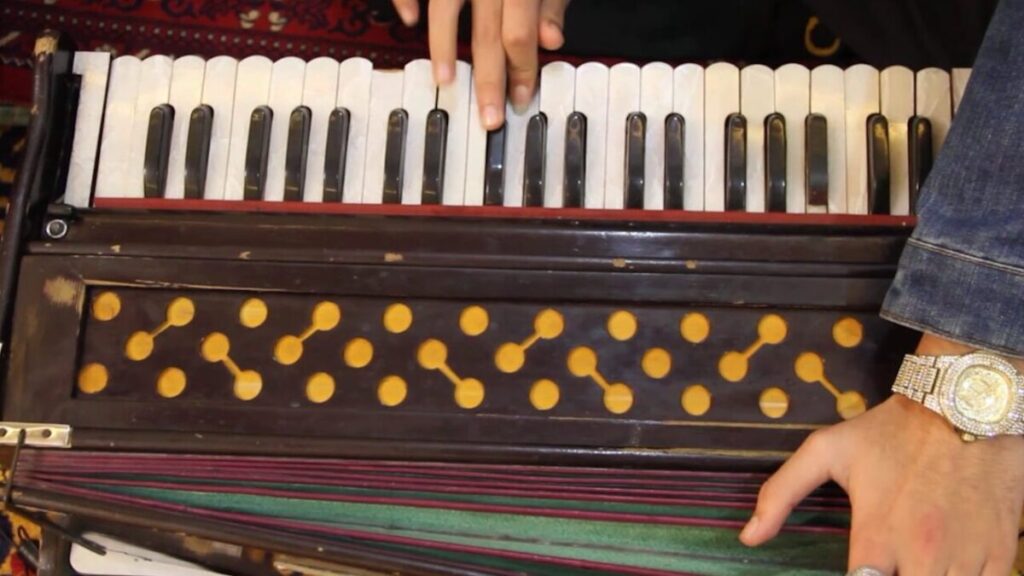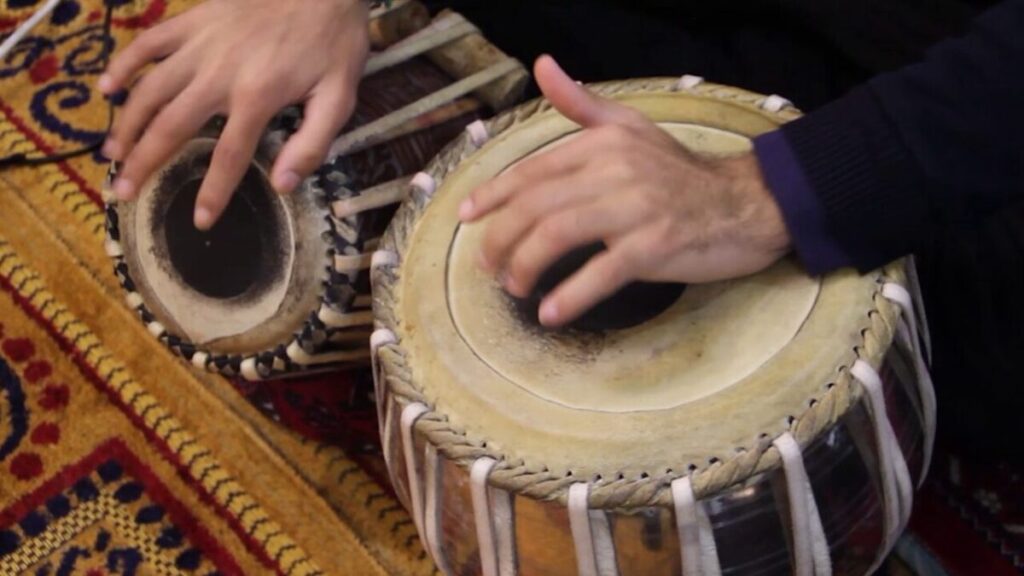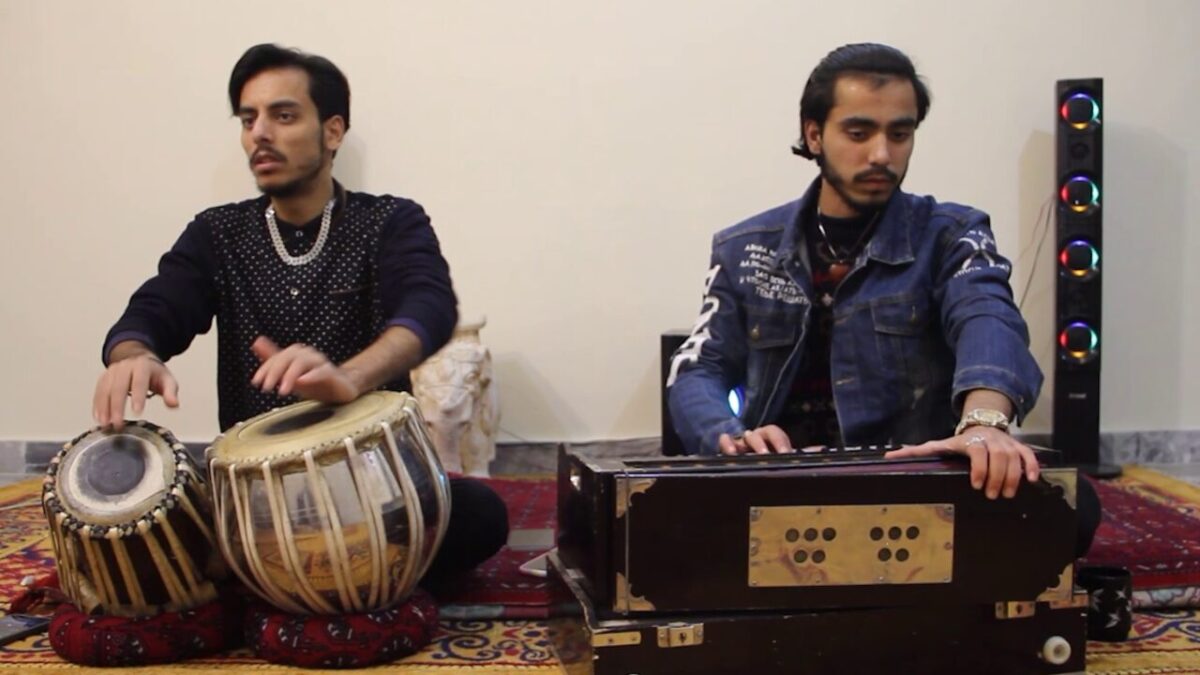Nazim Bakhsh and Nazim Bakhsh, grandsons of the renowned musician Ustad Rahim Bakhsh, say the Taliban’s ban on music forced them to flee Afghanistan and seek refuge in Pakistan. Now, without legal residency documents, the two artists live in constant fear of arrest and deportation by Pakistani authorities.
Raised on the melodies of their grandfather, Nazim and Nazim sing wistfully of Afghanistan’s rains and snowy mountains, their voices filled with longing for a homeland they were forced to leave behind.
The Taliban’s prohibition on music over the past three years has plunged the lives of many Afghan artists into turmoil. From unemployment and economic hardship to the uncertainty of exile, the ban has left artists like Nazim and Nazim grappling with an unrelenting sense of loss.
“After music was banned, we had no choice but to take on hard labor to survive,” Nazim Bakhsh told Amu in an interview. “Life became impossible, so we came to Pakistan. But even here, there is no peace. Pakistani police harass us for not having residency documents, and we constantly fear arrest and forced deportation to Afghanistan.”

A cultural heritage under threat
The Taliban’s restrictions have silenced Afghanistan’s vibrant music scene, pushing many artists to the margins or forcing them to flee the country.
“In Afghanistan, continuing to make music means risking death or imprisonment,” said Nazim Bakhsh. “The Taliban have declared music haram. Afghan music is dead, and our culture is being erased under this ban.”
For Nazim and Nazim, the Taliban’s ban represents not just the silencing of music but the obliteration of a cherished art form. “Music is not just restricted; it’s been destroyed,” Nazim said. “The voices of countless artists have been silenced, and there is no space left for creative expression.”

Memories in exile
In their songs, the two brothers evoke images of a bygone Kabul—the bustling alleys of Kharabat, once alive with the melodies of Ustad Rahim Bakhsh, and the warm gatherings filled with music and tea. Now, those memories exist only in their music, preserved as a bittersweet tribute to a homeland they cannot return to.
The story of Nazim and Nazim Bakhsh reflects the struggles faced by Afghanistan’s artists under Taliban rule. Their voices, like those of so many others, remain a haunting reminder of the cultural void left by the Taliban.





